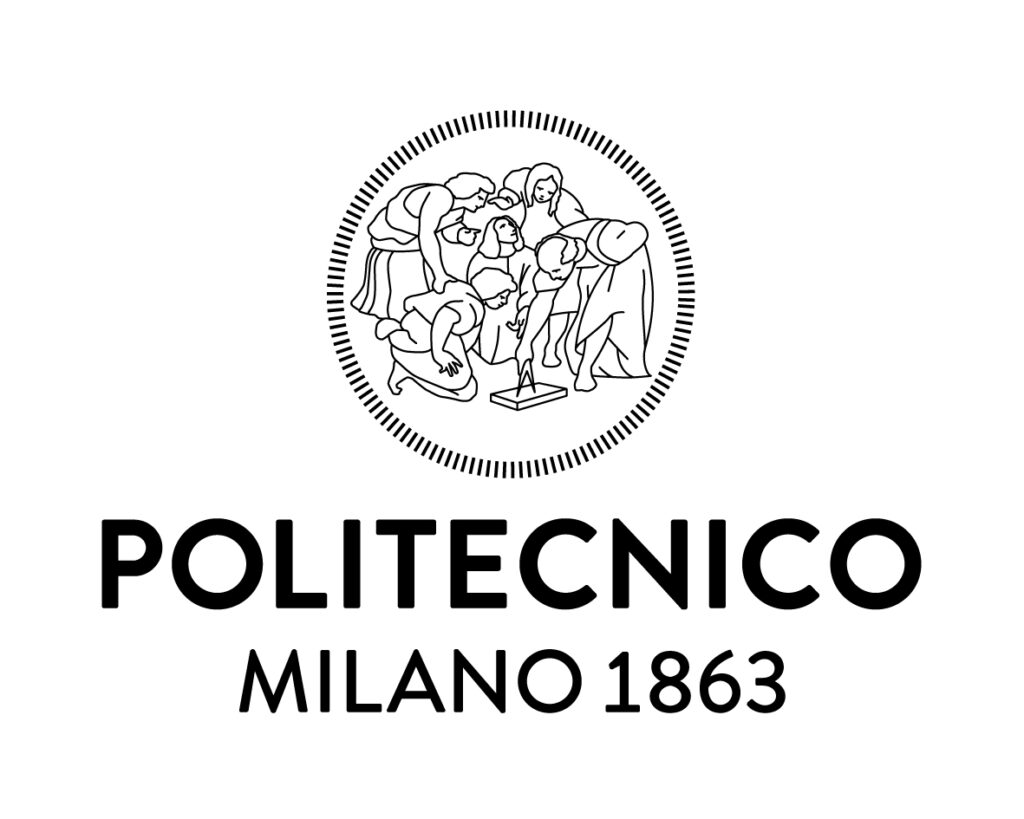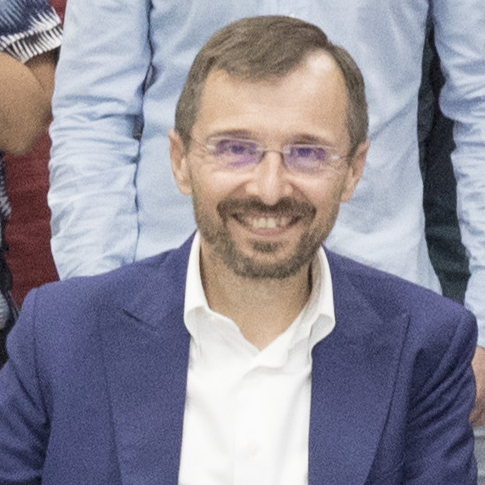
- This event has passed.
V Seminar
“INVALSI data: a tool for teaching and scientific research”
25/02/2021 – 28/02/2021

THEME
Promoting INVALSI data in scientific research and educational teaching.
The Seminar “INVALSI data: a tool for teaching and scientific research” will be held in Rome from 25th to 28th February 2021. This event, which has reached its 5th edition, has the purpose to promote the use of INVALSI data for scientific research and teaching. The data collected every year by INVALSI are a useful tool for investigating the characteristics of the Italian school system and for defining appropriate support or enhancement interventions. All interested parties are invited to submit research works based on INVALSI data.
SESSIONS
Session 1
Inequality situations at school: detection methods and best practices for the solution
Session co-organized with Espanet Italia
Scientific coordinator: Emmanuele Pavolini, Espanet Italia, Patrizia Falzetti, INVALSI
Equality is a fundamental principle of the school system. However, in recent years, both nationally and internationally research has shown how inequalities among students have increased. Economic, social, gender and geographic differences have produced a school model that is struggling to guarantee equality. In this session, thanks to the indicators provided by INVALSI data, it is possible to shed light on the inequalities and to identify the practices to be adopted so that the differences at school can be rebalanced.
Keywords: inequalities in learning, school, educational policies
Session 2

Learning analytics for the improvement of students and institutions performance: methods, evidence and perspectives
Session co-organized with Politecnico di Milano
Scientific coordinator: Tommaso Agasisti, Politecnico di Milano, Patrizia Falzetti, INVALSI
In the context of recent studies on educational policies, ‘Learning Analytics (LA)’ means the innovative use of statistical, econometric and machine learning techniques to identify recurrences and relationships between those variables which explain students' school results and institutions. In particular, the concept of LA is referred to situations with large, deep and complex databases - thus allowing to study the main problems of policy and educational practice with non-traditional and multidimensional perspectives. The main LA research areas can be classified as follows: (i) definition of predictive models of the risk of insufficient or particularly positive school performance; (ii) profiling of students 'characteristics associated with specific behaviours / performances, and (iii) integrated assessment of educational / teaching practices capable of impacting students' results. In this session, theoretical, methodological and / or empirical contributions on the use of Learning Analytics approaches are invited, with reference to the main problems identified and with applications at any school level (primary, secondary and university).
Keywords: Learning Analytics, school performance, students’ characteristics
Session 3
INVALSI data: a tool for improving teaching and evaluating transversal skills
Education is the basis of each individual growth. Studying means to grow intellectually, to understand the world around us, to improve one's employment and economic condition and to become citizens capable of acting in complex social systems. Can INVALSI data trigger an improvement process linked to test results and to evaluate the transversal skills necessary to face reality outside school? The contributions presented in this session could establish a link between classroom practice and scientific research, discuss teaching problems and perspectives and pave the way for an interdisciplinary debate.
Keywords: teaching practices, learning, educational research, technologies and tools in education, transversal skills, school.
Session 4
Student results and their characteristics
The study of students’ characteristics (gender, socio-economic-cultural background, origin, etc.) allows to highlight the differences and similarities that have always characterized school results. The contributions presented in this session will promote the debate on the topic of school inclusion and may propose solution strategies for the gaps that currently exist.
Keywords: gender, socio-economic-cultural background, origin, gaps, school performance, inclusion.
Session 5
Models and methods applied to INVALSI data
The purpose of a mathematical model is to represent a given object or phenomenon as incisively as possible and its aim is to make future prognoses on a system. INVALSI data therefore constitute a large-scale database for their application. The contributions of this session will indicate new solutions and perspectives for the school system as a whole.
Keywords: mathematical model, methodologies, data, innovation, experimentation.
Session 6
INVALSI data as a tool to support innovation and school improvement
Since 2015, the ‘Improvement Plan’ becomes part of the school agenda. It is a path that involves transformations and changes in a dynamic approach involving the whole school community and affecting two dimensions: the didactic and the management organizational one. The works presented in this session, in which INVALSI data constitute a precious resource, will provide ideas for the self-reflection and self-assessment of individual schools.
Keywords: Evaluation, improvement, innovation, training, strategies, results, quality of the educational system, school effect.
Session 7
CBT tests and learning analysis
Starting from 2017/2018 school year, computer based tests (cbt) have been introduced in national surveys and today these tools involve school grades 8, 10 and 13. Also at international level, the tests of the various surveys managed by OECD and IEA are going in the same direction. With CBT, unlike paper&pencil, new study scenarios open up . In which order have the items been completed? What responses have been reviewed and how have they been changed? How long did it take a student to answer each individual item? The works presented in this session could answer various questions and illustrate the potential of these tools.
Keywords: Computer based test, evaluation, digital teaching, didactic innovation, learning, effectiveness.
Session 8
The role of teachers on student achievement
Scientific coordinator of the session: Gianluca Argentin, Università di Milano Bicocca
Teachers are known to be a crucial school factor that influences student achievement, but the mechanisms by which this process takes place are still largely obscure. This session encourages the presentation of papers focusing on characteristics, attitudes and practices of teachers and on analyses that evaluate (positively or negatively) the impacts on student performance and inequalities in education.
Keywords: teachers, teaching practices, school results
WORKSHOP
Workshop 1
Advanced Secondary Analysis of Large-scale Assessments in Education: A Discussion of Methods
Organizer: Andres Sandoval-Hernandez, University of Bath
An illustration of advanced methods for secondary data analysis (e.g. person-centered and variables-centered measurement models; multilevel/SEM models) applied to Italian and international large-scale assessment data and its complexities (e.g. sampling weights, plausible values, missing data).
Workshop 2
Using Results of Secondary Analysis of Large-scale Assessments in Education to Inform Educational Policy
Organizer: Maria Magdalena Isac, KU Leuven
A didactic illustration of the use of results from large-scale assessment data in education to inform policy actors and wider audiences with examples of several policy briefs and the process of their elaboration.
Workshop 3
Agenda 2030: survey on Sustainable Development Goals through INVALSI data.
Organizer: INVALSI
This workshop will focus on 3 out of the17 sustainable development goals (SDGs) adopted by all United Nations Member States in 2015. Provide quality, fair and inclusive education; achieve gender equality and empower all women and girls and reduce economic inequalities within and outside the national borders. INVALSI datasets will provide the base to take a snap of the results achieved which can stimulate a discussion about possible improvements and a starting point for measuring possible progress.
KEYNOTE SPEAKERS
Esteemed keynote speakers will introduce the main themes of the conference.

Tommaso Agasisti
Professor of Public Management at Politecnico di Milano. He is the co-director of the Master in School Management (Master MES) and of the Master in Managing digital innovation in schools (Master MIDIS) at MIP Politecnico di Milano Graduate School of Business, where he serves as Associate Dean for International Relations. His research interests deal with performance evaluation of public organizations, with a special attention to schools, universities and local governments. He is the Associate Editor of the journal Higher Education Quarterly, and Director of the journal Dirigenti Scuola.

Annamaria Ajello
Full Professor of Developmental and Educational Psychology at the Faculty of Medicine and Psychology of the University of Rome Sapienza. She studied the problems related to the acquisition of social and, in particular, economic knowledge. She has worked in collaboration with several public bodies (Province of Rome, Autonomous Province of Trento, Ministry of Education) where she was in charge for managing selection and training activities. She is currently President of INVALSI.

Tito Boeri
Professor of Economics at Bocconi University in Milan (where he was also Vice Rector for Research until autumn 2014) and Senior Visiting Professor at the London School of Economics (where he was Centennial Professor). He was senior economist at the Organization for Economic Cooperation and Development (OECD), consultant to the International Monetary Fund, the World Bank, the European Commission, the International Labor Office as well as the Italian government. From March 2015 to February 2019 he held the position of President of the National Institute of Social Security (INPS). He is Scientific Advisor of the Rodolfo Debenedetti Foundation (www.frdb.org) of which he has been Director since its establishment in 1998. He is a fellow of the European Economic Association and of the European Association of Labor Economists. He is also a research fellow of the Innocenzo Gasparini Institute for Economic Research (IGIER Bocconi), of the CEPR (Center for Economic Policy Research), of the Center for Economic Performance of London, of the IGA (Institut zur Zukunft der Arbeit) of Bonn and of Netspar (Network for the Study of Pension and Retirement) of Tillburg. He was a columnist for Sole24ore, La Stampa and La Repubblica and has collaborated with foreign newspapers such as the Financial Times and Le Monde. He is one of the founders of the economic information site www.lavoce.info and the federated site in English www.voxeu.org. He is scientific director of the Trento Festival of Economics.

Enrico Giovannini
Enrico Giovannini is full professor of Economic Statistics and Sustainable Development at the Tor Vergata University of Rome, of Sustainable Development at LUISS and at the National School of Ad-ministration (SNA). He is the co-founder and director of the Italian Alliance for Sustainable Develop-ment, a coalition of more than 240 organisations established to implement the UN 2030 Agenda in Ita-ly. He was Director of Statistics and Chief Statistician of the OECD (2001-2009), President of the Italian Statistical Institute (2009-2013) and Minister of Labour and Social Policies (2013-2014). In October 2014 he received the highest ranking honour of the Italian Republic “Cavaliere di Gran Croce al Merito della Repubblica”. He is the author of more than 100 articles and five books on statistical and economic topics.

Daniel Muijs
Deputy Director for Research and Evaluation at Ofsted. Prior to his current role, Daniel was Professor of Education at the University of Southampton, and Associate Dean Research and Enterprise in the Faculty of Social, Human and Mathematical Sciences. He also previously worked as Professor of Pedagogy and Teacher Development at the University of Manchester, Professor of School Leadership and Management at the University of Newcastle and as senior lecturer in quantitative research methods at Warwick Institute of Education. He is an acknowledged expert in the fields of Educational and Teacher Effectiveness and quantitative research methods and has published widely in these areas. He is co-editor of the journal 'School Effectiveness and School Improvement', and has held key advisory posts in a range of academic and professional organisations, including the executive council of the European Association for Research in Learning and Instruction and the Questionnaire Expert Group for the OECD TALIS survey. Daniel holds a PhD in Social Sciences from the Catholic University of Leuven (Belgium), an MSc in Managerial Economics (Catholic University of Leuven) and a BA in Communication Sciences (Catholic University of Leuven).

Emmanuele Pavolini
Full Professor in Economic Sociology and Social Policy at the University of Macerata (Italy). He is a Member of the board of ESPAnet (European Social Policy Network) and co-chair of the board of Italian ESPAnet. He published articles on various journal, in Italian and English, on the welfare systems with specific attention to health care, family policies, occupational welfare, and studies, from a comparative perspective, on the Italian and Southern European welfare models. He is currently co-editor of the Journal of European Social Policy.

Roberto Ricci
Research Director at INVALSI where he has been responsible for national tests since 2008 and he is the coordinator of the research area . After obtaining a PhD in statistical methodology for scientific research, he has worked for over twenty years in the field of measurement of learning through standardized tests. He is a member of the Governing Boards of PISA and TALIS, and he is a member of the General Assembly of the IEA. In recent years, he has been involved in the national implementation of important evaluation tools in schools, such as the measurement of the school effect, the so-called added value, and the definition of the diachronic-longitudinal change of learning levels. Recently, he has been involved in the transition to computer-based testing (CBT) of the INVALSI tests, also in an adaptive perspective at the individual level (multistage adaptive testing). He is a trainer at schools to foster a constructive dialogue on the issues of external evaluation. He is the author of many informative and technical-methodological articles on topics related to large-scale standardized measurement.

Leslie Rutkowski
Associate Professor of Inquiry Methodology at Indiana University. Leslie's research is in the area of international large-scale assessment. Her interests include latent variable models and examining methods for comparing heterogeneous populations in international surveys. Leslie currently serves as associate editor for the Springer journal Large-scale Assessments in Education and as co-executive editor for the Springer book series, IEA Research for Education. She is also the chair of the PISA Technical Advisory Group and the US NAEP Questionnaire Standing Committee.

Andres Sandoval Hernandez
Currently a Reader in Educational Research at the University of Bath in the UK. Previously, he worked as Head of the Research and Analysis unit at the International Association for the Evaluation of Educational Achievement (IEA) in Germany and held various academic positions at the Universidad Iberoamericana (UIA) and the Facultad Latinoamericana de Ciencias Sociales (both in Mexico). Over tha last few years, he has also collaborated with or consulted for the ministries of education of several countries and various international organisations including the World Bank, OECD, UNESCO and UNICEF. His research interests include comparative analysis of education systems using large-scale assessment data with a focus on educational inequalities and civic education.
KEYNOTE SPEAKERS SESSIONI TEMATICHE
Save the Children

Valeria Fabretti
Researcher at the Center for Religious Studies of the Bruno Kessler Foundation (Trento, Italy) and teacher of Sociology at the University of Rome "Tor Vergata". Since 2019 she is a research consultant for Save the Children, Italy. In this context she works as a senior researcher for the Horizon 2020 IMMERSE project, which focuses on the social and educational integration of migrant and refugee children in Italy and Europe. She was a research fellow at the Documentation Center on Postecular Societies (CSPS) of the University of Rome 'Tor Vergata' and by the Department of Social and Economic Sciences of the University of Rome 'Sapienza', where she previously obtained her PhD in Sociology (2009). Her studies and empirical researches concern the forms of coexistence and pluralism within public institutions and urban space, with particular attention to the management of cultural and religious diversities, to the expressions of intolerance and hatred towards minorities and to the intercultural education.

Christian Morabito
Senior researcher at Save the Children, Italy since 2014, where he developed the Educational Poverty Index which goal is to measure the educational deprivation of minors in Italy. During his career he has collaborated with UNDP, UNESCO, the European Commission and the World Bank, in particular in the management of cooperation and research programs in the field of poverty reduction and education in Europe and in sub-Saharan Africa. His main areas of specialization are: inequalities, in particular the intergenerational transmission of disadvantage, their measurement and public policies in the social and educational fields aimed at contrasting them.
Strategia Nazionale Aree Interne

Anna Ceci
Economist, senior expert in quantitative economic analysis, currently deals with the monitoring and evaluation of territorial public policies. Since 2000 she has been a researcher at the National Institute of Statistics, where until 2008 she coordinated the surveys on public and private non-profit institutions scientific research.
Since September 2016 she’s a member of the Evaluation and Analysis Unit for programming of the Department for cohesion policies of the Presidency of the Council of Ministers, where she deals with methodological aspects concerning the use of data, construction of territorial statistical indicators and databases for the planning and evaluation of territorial public policies and coordinates the activities of methodological supervision on the implementation of projects on statistical measurement under the National Operational Program for Governance and Institutional Capacity 2014-2020.
From 2012 to 2016 she coordinated, within the Public Investment Assessment Unit (Uval) of the Ministry of Economic Development, the activities related to the definition of the result indicators set of the 2014-2020 Partnership Agreement, the activities methods for the implementation and publication of policy indicators at the territorial level and she actively participated in the “OpenCoesione” working group. From 2008 to 2011 she was a member of the technical secretariat of the Minister for Public Administration and Innovation, where she coordinated the design and implementation of the system for detecting sick leave of public employees and actively supported the head of the Department for digitization of the public administration and technological innovation of the Presidency of the Council of Ministers. She published essays in Italian and English on the subject of the Italian economy, the labour market, the South and the measurement of public policy results.

Sabrina Lucatelli
Esperta di Alto Livello che opera nel campo delle politiche territoriali a favore delle aree a bassa densità di popolazione, occupandosi sia di problematiche di sviluppo che di riorganizzazione dei servizi sia a livello Internazionale che Nazionale / Locale. Attualmente è Senior Expert presso l’Unità di Valutazione della Presidenza del Consiglio dei Ministri. È stata responsabile della Strategia delle Aree Inners per la Presidenza del Consiglio dei Ministri d’Italia: un’azione speciale per fermare la diminuzione della popolazione nei piccoli comuni e nelle aree di montagna. È Delegata Italiana e Vice Segretaria del TDCP / Aree Rurali. In precedenza è stata all’OCSE come economista per la Direzione per l’agricoltura alimentare e la pesca e il Dipartimento di Economia, e presso la Commissione europea, lavorando sia nella Direzione della politica regionale che nell’Agenzia per lo sviluppo, a Bruxelles. Si è laureata presso l’Università degli Studi di Roma e ha conseguito un Master of Science in Economia Agraria presso l’Università Cattolica di Milano e un Diploma Superiore in Sviluppo Rurale presso l’University College Cork. Ha svolto importanti ricerche e attività di valutazione cercando di valutare come la Politica di Sviluppo Rurale e la Politica Regionale stiano impattando sulle aree rurali in Italia, Europa e Paesi OCSE. I suoi lavori includono libri, documenti e articoli sui rapporti tra l’agricoltura e l’economia più ampia della regione; collegamenti rurali-urbani; sviluppo locale e fornitura di servizi di base nelle zone rurali. È studentessa di pianoforte di alto livello (livello pre accademico).
PROGRAM
SUBMISSION
Abstract Submission
Interested parties must send an abstract (in Italian and English, maximum 6,000 characters including spaces for each) together with 3-6 keywords (in Italian and English) and a short biography (maximum 350 characters including spaces, in Italian and English) of each author / co-author.
Guidelines for Abstract Submission
For both the scientific research and the teaching tier, the abstract must summarizes the entire work in order to allow readers to quickly get an idea of the contribution. Therefore it should be:
- accurate: providing the aims and content of the contribution and not including not necessary information;
- non-evaluative: it has to report data without any kind of judgement;
- coherent and legible: the language should be clear and concise, using preferably verbs rather than equivalent nouns and favouring the active form.
In order to improve the evaluation, both abstracts must be prepared in the following format and using the following paragraph style:
- Introduction, to clarify the paper orientation and with references in the literature;
- Object and research hypothesis;
- Data;
- Method(s) employed;
- Results achieved.
Guidelines for the presentation of final contributions
The complete contribution should be written in Times new roman 12, line spacing 1.5 and must not exceed 6,000 words, including the final bibliography. Bibliographical references must follow the APA (American Psychological Association) standards.
Scientific research contributions should be in english (both presentation and slides); educational teaching contributions should be in italian (both presentation and slides).
The works will be checked by an anti-plagiarism software.
Paper Publication
The contributions presented to the Seminar, if not already published or in press, with the consent to public and after double-blind review, can be included in a volume with ISBN.
DEADLINES
7th august 2020
Open call for paper.
15th september 2020
Opening abstract submission.
26th october 2020 2th november 2020
Deadline for abstract submission.
16th november 2020 23th november 2020
Notification of abstract evaluation.
16th november 2020 24th november 2020 – 7th december 2020
Speaker registration.
18th december 2020 22 december 2020
Inizio registrazione partecipanti.
31th january 2021 15th february 2021
End registration.
5th february 2021 12th march 2021 29th march 2021
Submission of the contribution.
15th february 2021
Upload presentation.
SCIENTIFIC COMMITTEE
UNIVERSITY OF MILAN
RESEARCHER
Giovanni Abbiati
BRITISH ACADEMY GLOBAL PROFESSOR
UNIVERSITY COLLEGE LONDON
Francesca Borgonovi
RESEARCHER
UNIVERSITÀ DI GRONINGEN
Maria Magadlena Isac
SENIOR RESEARCHER
INVALSI
Laura Palmerio
POLICY OFFICER
EUROPEAN COMMISSION, DG COMPETITION
Daniele Vidoni
RESEARCHER
ISTAT
Barbara Baldazzi
TECHNOLOGIST DIRECTOR
INVALSI
Patrizia Falzetti
RESEARCHER
LA SAPIENZA, UNIVERSITÀ DI ROMA
Veronica Lo Presti
ASSOCIATE PROFESSOR
UNIVERSITY OF BARI
Serafina Pastore
RESEARCHER
DEPARTMENT OF POLITICAL AND SOCIAL SCIENCES - UNIVERSITY OF BOLOGNA
Loris Vergolini
ASSOCIATE PROFESSOR
UNIVERSITY CATTOLICA DEL SACRO CUORE
Gianpaolo Barbetta
PROFESSORESSA A CONTRATTO
UNIVERSITY OF BOLOGNA
Federica Ferretti
FULL PROFESSOR
UNIVERSITY OF BOLOGNA
Stefania Mignani
FULL PROFESSOR
UNIVERSITY OF MACERATA
Emmanuele Pavolini
ASSOCIATE PROFESSOR
UNIVERSITY OF MODENA AND REGGIO EMILIA
Chiara Bertolini
RESEARCHER
INVALSI
Michela Freddano
COLLABORATORE TECNICO ENTI DI RICERCA
INDIRE
Sara Mori
DIRIGENTE DI RICERCA
INVALSI
Roberto Ricci
Corso di formazione
Iscriviti al corso di formazione riservato ai docenti
“La cultura della valutazione e l’importanza dei dati standardizzati”
che si terrà on line il 28 febbraio 2021.
N.B. Si prega di formalizzare prima la scelta sul Sistema Operativo per la Formazione e le Iniziative di Aggiornamento dei docenti S.O.F.I.A. scegliendo il corso a questo link: https://www.istruzione.it/pdgf/index.html.
L’iscrizione al Seminario e l’iscrizione al corso di formazione avvengono su due ambienti indipendenti, pertanto per partecipare a entrambi occorre iscriversi su ciascuna delle piattaforme dedicate.
Details
Start:
25 febbraio 2021
End:
28 febbraio 2021
Organizer: INVALSI
Email:
datiperlaricerca2020@eventinvalsi.it
Website:
https://www.invalsi.it/invalsi/index.php
Event location
Best Western Plus Hotel Universo
Via Principe Amedeo 5/B
Roma, 00185
Telefono: 39 06 476811
Sito web: https://www.hoteluniverso.com/
 INVALSI Statistical Department
INVALSI Statistical Department 
